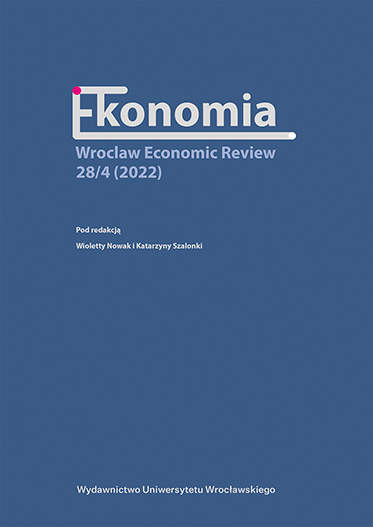Zaburzenia odżywiania a postrzeganie obrazu ciała wśród kobiet po urodzeniu dziecka w okresie postpandemicznym
Eating disorders and the perceived body image among women after childbirth in the post-pandemic period
Author(s): Mateusz Grajek, Martina Grot, Maria Kujawińska, Weronika Gwioździk, Paulina Helisz, Agnieszka Białek-DratwaSubject(s): Clinical psychology, Health and medicine and law
Published by: Wydawnictwo Uniwersytetu Wrocławskiego
Keywords: eating disorders; SCOFF; TFEQ-13; body image; COVID-19 pandemic;
Summary/Abstract: The perinatal period is a physiological and psychological challenge in the life of a pregnant woman and future mother, requiring special interdisciplinary care. The three-year SARS-CoV-2 pandemic has redefined many areas of the public health sector, causing psychophysical changes. The COVID-19 disease, which has reached a global scale, has intensified the progression of mental disorders, especially taking into account the dysfunctional relationship with one’s diet which predisposes people to a lack of control, excessive restriction of meals, and emotional eating, causing obesity-oriented eating disorders, binge eating syndrome, and pregorexia. The aim of the study was to analyze the perceived body image among women after childbirth, focusing on the occurrence of possible eating disorders. The methodological tools were the TFEQ-13 questionnaire and the SCOFF questionnaire along with the record and qualitative analysis of the female nutrition (up to one year after childbirth). 288 women aged 20–45 were qualifi ed for the study. Anthropometric measurement taking into account BMI in the form of index categorization as the norm was the majority (66.7%). The pre-pregnancy and postpartum weight gain averaged 3.5 kilograms. The aspect of body perception by women indicated a lack of satisfaction with its image (69%), but half of the respondents were aware of changes in external appearance with a positive perception of the body image. The negative subjective assessment concerned a smaller percentage of women (22%). Moreover, signifi cant differences were observed in the case of the perception of body weight and the method of feeding the child (p = 0.03). Additionally, dissatisfaction with body weight predisposed to a higher SCOFF score, indicating the risk of developing eating disorders (46%; p = 0.001) with increasing body mass index. A significant correlation was observed between the reduction of consumed meals and a higher BMI parameter, along with dissatisfaction with body weight among overweight or healthy women and those physically active during the pre-conception period. Women were much more often characterized by a lack of control over food in the perinatal period (according to the TFEQ-13 questionnaire). To sum up, behaviors aimed at limiting eating, lack of control over eating, as well as emotional eating in the studied group of women resulted in a negative self-perception in the form of dissatisfaction with body weight. Overweight and obese women are predisposed to the progression of eating disorders in the form of pregorexia. The therapeutic and preventive element in the form of nutritional education is key, as common errors in the diet and supplementation are associated with a higher risk of eating disorders.
Journal: Ekonomia – Wroclaw Economic Review
- Issue Year: 28/2022
- Issue No: 4
- Page Range: 85-95
- Page Count: 11
- Language: Polish

